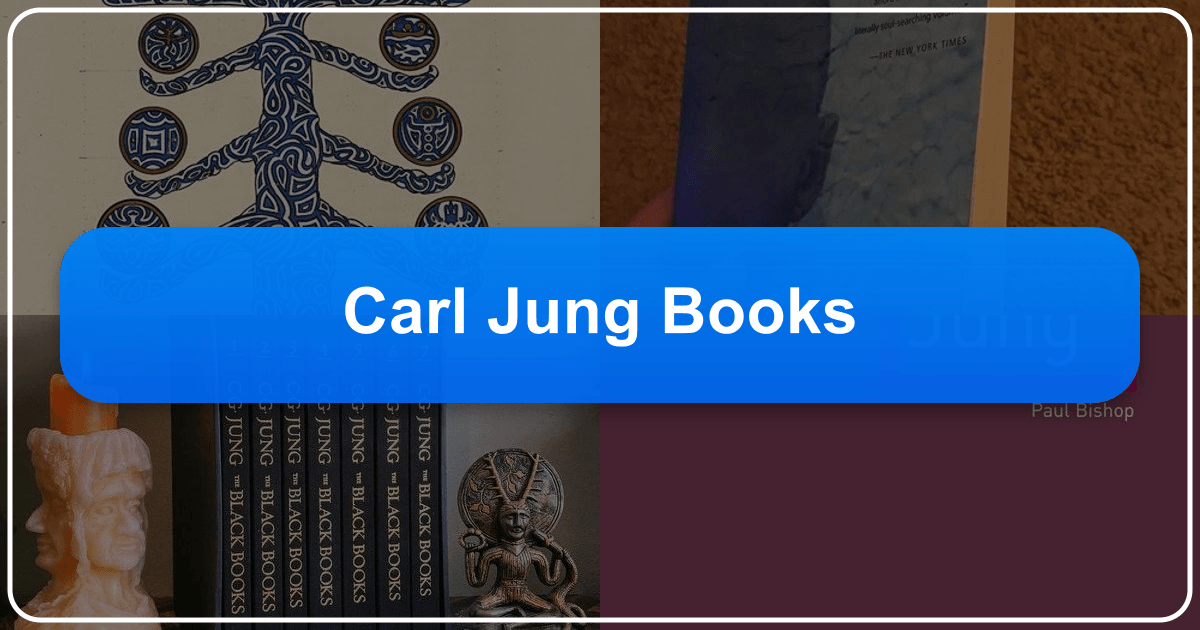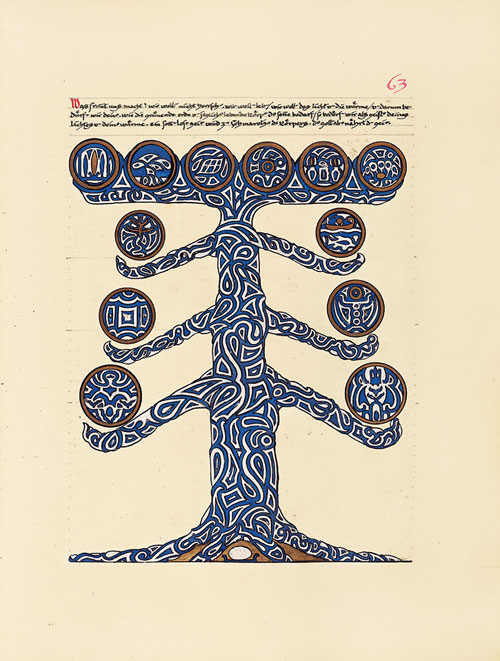Carl Jung Books: A Comprehensive Exploration

Carl Gustav Jung, a towering figure in the field of psychology, left behind a rich legacy of influential works that continue to shape our understanding of the human psyche. His exploration of the unconscious, archetypes, and the collective unconscious has had a profound impact on various disciplines, from psychotherapy and literature to art and spirituality. This article delves into the world of Carl Jung’s books, examining their genres, impact, and enduring relevance.
Exploring the Genres and Themes of Carl Jung’s Works

Jung’s prolific output spans various genres, primarily falling under psychology, philosophy, and mythology. His works aren’t mere academic treatises; they are engaging explorations of the human condition, drawing on diverse sources to illuminate the complexities of the inner life. His writing style, while deeply intellectual, often incorporates personal anecdotes, dream analysis, and rich symbolism, making his complex ideas accessible to a wider audience.
One of the key distinctions in Jung’s writing is his shift away from the purely pathological focus of Freudian psychoanalysis. While acknowledging the importance of the personal unconscious, Jung expanded the scope of psychological inquiry to include the collective unconscious—a universal reservoir of shared symbols and archetypes inherited from our ancestral past. This concept is central to many of his later works and profoundly impacts his approach to dream analysis and symbolic interpretation.
His books can be broadly categorized into several themes:

Archetypes and the Collective Unconscious:
This theme forms the bedrock of Jungian psychology. Books like The Archetypes and the Collective Unconscious and Symbols of Transformation delve into the concept of universal, primordial images (archetypes) residing within the collective unconscious. These archetypes—such as the Shadow, the Anima/Animus, and the Self—influence our behavior, dreams, and creative expressions, offering a framework for understanding the recurring patterns in human experience. Jung’s exploration of these concepts draws heavily on mythology, folklore, and religious symbolism, demonstrating their cross-cultural universality.

Individuation and the Process of Self-Realization:
Jung considered individuation—the process of becoming a whole, integrated self—as the central goal of human life. This journey involves confronting and integrating the various aspects of the personality, including the Shadow self, which often holds repressed or undesirable traits. Memories, Dreams, Reflections, Jung’s autobiography, provides a powerful personal narrative of his own individuation process, enriching the theoretical understanding with lived experience. Other books, such as Aion and Psychology and Alchemy, explore the alchemical process as a metaphor for psychological transformation and the integration of opposing forces within the psyche.
Dreams and the Unconscious:
Dreams, for Jung, were not mere random firings of the brain but rather expressions of the unconscious mind, offering valuable insights into the individual’s inner world. Man and His Symbols, a collaborative work, provides an accessible introduction to Jungian dream analysis, illustrating how dreams can reveal hidden conflicts, desires, and symbolic meanings. Psychology of the Unconscious presents an early articulation of Jung’s ideas on the unconscious, laying the groundwork for his later, more developed theories. The Red Book, a highly personal and artistic account of Jung’s own confrontations with his unconscious, showcases this theme in its most raw and evocative form.
Psychology and Spirituality:
Jung broke away from the purely materialistic perspectives prevalent in psychology at the time, recognizing the significant role of spirituality in the human psyche. He explored the inherent religiousness of the human mind, arguing that it’s a fundamental aspect of our being. Psychology and Religion directly addresses this theme, examining the relationship between psychological development and religious experience. His works often draw parallels between psychological processes and religious and mythological themes, illustrating the symbolic language used to express fundamental human experiences.
Carl Jung: Author and His Inspirations
Carl Jung’s intellectual journey was deeply influenced by a wide range of sources. His early training in psychiatry and his collaboration with Sigmund Freud laid the foundation for his thinking. However, he eventually diverged from Freud, developing his unique system of analytical psychology. Jung’s fascination with mythology, religion, philosophy, and art shaped his approach to understanding the human psyche. He drew inspiration from diverse cultures and historical periods, believing that the collective unconscious expressed itself across various symbolic forms. His writing style reflects this eclecticism, blending academic rigor with poetic imagery and personal narrative. The famous “Red Book,” for instance, exemplifies this blending, incorporating text, illustrations, and personal reflections to create a singular work. His inspirations, therefore, are not limited to specific authors but extend to the vast tapestry of human cultural expression.
Educational Value and Life Lessons in Jungian Psychology
Jung’s work holds significant educational value, offering a profound understanding of the human psyche and its complexities. Reading Jung’s books offers far more than simply expanding one’s knowledge of psychology. The insights derived from his work contribute to:
Self-Understanding and Personal Growth:
Jungian psychology provides a powerful framework for self-discovery and personal growth. By understanding the dynamics of the unconscious, archetypes, and the process of individuation, individuals can gain a deeper understanding of their own motivations, behaviors, and patterns. This understanding can lead to greater self-acceptance, emotional maturity, and personal transformation.
Enhanced Creativity and Imagination:
Jung believed that the unconscious was a wellspring of creativity. His work encourages the exploration of one’s imagination and the acceptance of symbolic thinking, providing tools for unlocking creative potential. His emphasis on dream analysis and active imagination serves as a methodology for tapping into the creative potential of the unconscious.
Improved Relationships and Communication:
Jung’s exploration of the archetypes, particularly the Anima and Animus (the feminine and masculine aspects within the psyche), provides insights into the dynamics of human relationships. Understanding these internal projections can lead to better communication, greater empathy, and more fulfilling relationships.
Spiritual Development and Meaning-Making:
Jung’s acknowledgment of the inherent spiritual nature of the human psyche offers guidance for those seeking spiritual growth and meaning in their lives. His work encourages a dialogue between the rational and the spiritual aspects of human experience, paving a path towards a more holistic understanding of life’s purpose.
The Cultural Impact of Carl Jung’s Work
Jung’s influence extends far beyond the realm of academic psychology. His ideas have permeated various aspects of culture, leaving an indelible mark on:
Literature and Art:
Jungian concepts have deeply impacted literature and art, providing inspiration for countless works across various mediums. His exploration of archetypes, the unconscious, and symbolism has found its way into novels, poetry, film, and visual arts, influencing narratives and creative expression.
Therapy and Psychotherapy:
Jungian psychology forms the foundation of analytical psychology, a distinct school of psychotherapy that utilizes Jung’s theories and techniques. Jungian analysts use dream analysis, active imagination, and explorations of the unconscious to assist individuals in their process of individuation.
Spiritual and Self-Help Movements:
Jung’s ideas have found resonance within spiritual and self-help movements, providing a framework for understanding the inner self and spiritual development. His work has contributed to the growing recognition of the importance of spirituality in personal growth and well-being.
Awards and Recognition:
Jung’s contributions have been extensively recognized throughout his lifetime and posthumously. While the specific awards may vary depending on the source and period considered, his work consistently garners high praise and remains widely studied and discussed.
Communities and Continuing Study:
The enduring interest in Jungian psychology is evident in the vibrant communities and institutions dedicated to its study and application. Numerous societies, academic programs, and online forums facilitate the exploration and dissemination of Jungian ideas, ensuring its continued relevance in contemporary society. These communities contribute to the ongoing evolution and adaptation of Jung’s ideas to new contexts.
In conclusion, Carl Jung’s books represent a rich and complex body of work that continues to resonate with readers and scholars alike. His exploration of the unconscious, archetypes, and the collective unconscious offers a compelling framework for understanding the human psyche, while his emphasis on individuation and spiritual development provides valuable insights for personal growth and meaning-making. The enduring cultural impact of his work serves as a testament to the depth and enduring power of Jungian psychology.